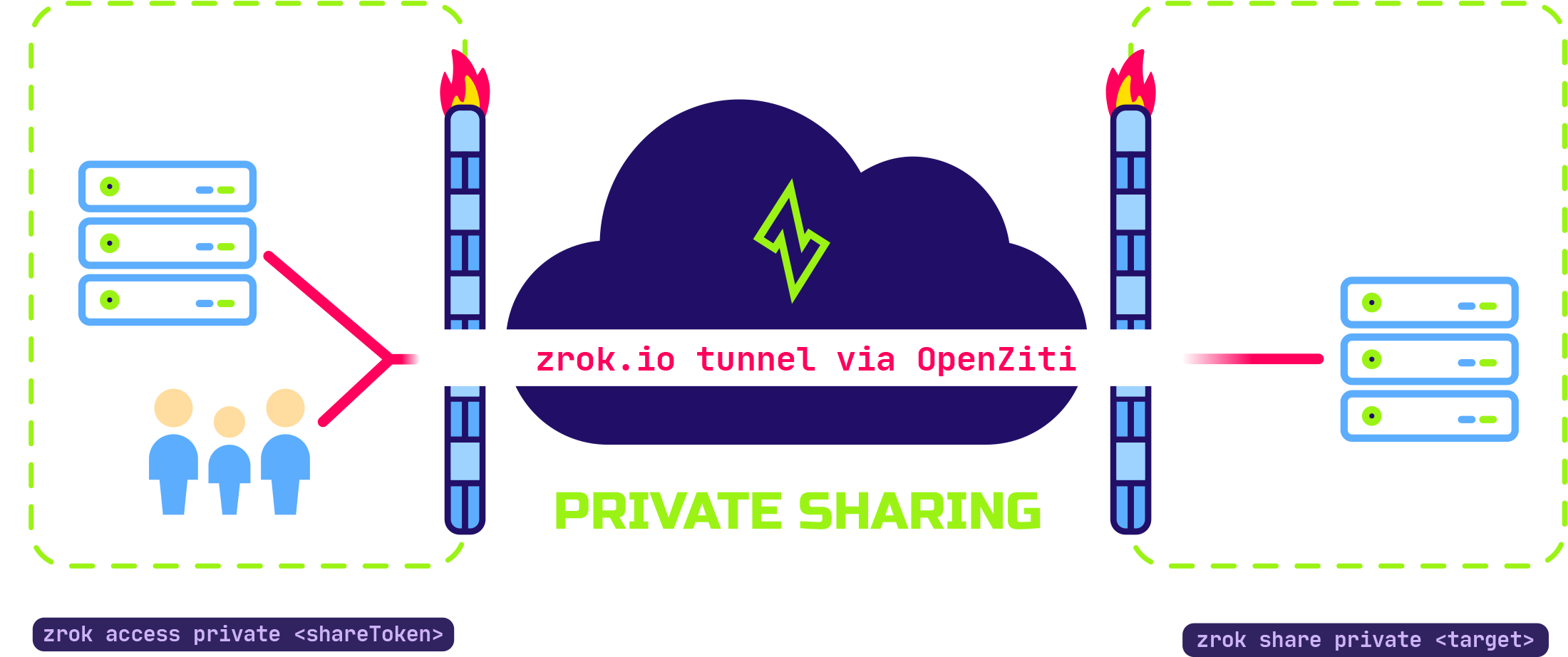2.1 KiB
| sidebar_position |
|---|
| 0 |
Shares - Private
zrok was built to share and access digital resources. A private share allows a resource to be
shared through a privately available endpoint. Privately shared resources can only be accessed by another zrok user who has the details of your unique share.
Sharing a resource with privately is one of the things that makes zrok unique.
zrok also provides public sharing of resources with non-zrok users. Public resource sharing is limited to only resources that can be accessed over HTTP or HTTPS.
Here's how private sharing works:
Peer to Peer
private shares are accessed using the zrok access command, and require the accessing user to have a working (and enable-d) zrok account on the same service instance where the share was created.
The private share is identified by a share token, which uniquely identifies your share. The accessing user will use the share token, along with the zrok access command to create a local endpoint on their system, which let's them use the shared resource as if it were local to their system.
private sharing does not require you to open any firewall ports or otherwise compromise the security of your local system; there is never an attack surface open to the public internet.
The shared resource can be a development web server to share with friends and colleagues or perhaps,
it could be a webhook from a server running in the cloud which has zrok running and has been instructed
to access the private resource. What matters is that the access to the shared resource should not
be done in a public way, for more secure access.
The peer-to-peer capabilities of zrok are an important property of the underlying OpenZiti network that zrok uses to provide connectivity between users and resources.
Using private shares is easy and is accomplished using the zrok share private command. Run zrok share private to see the usage output and to further learn how to use the command.
